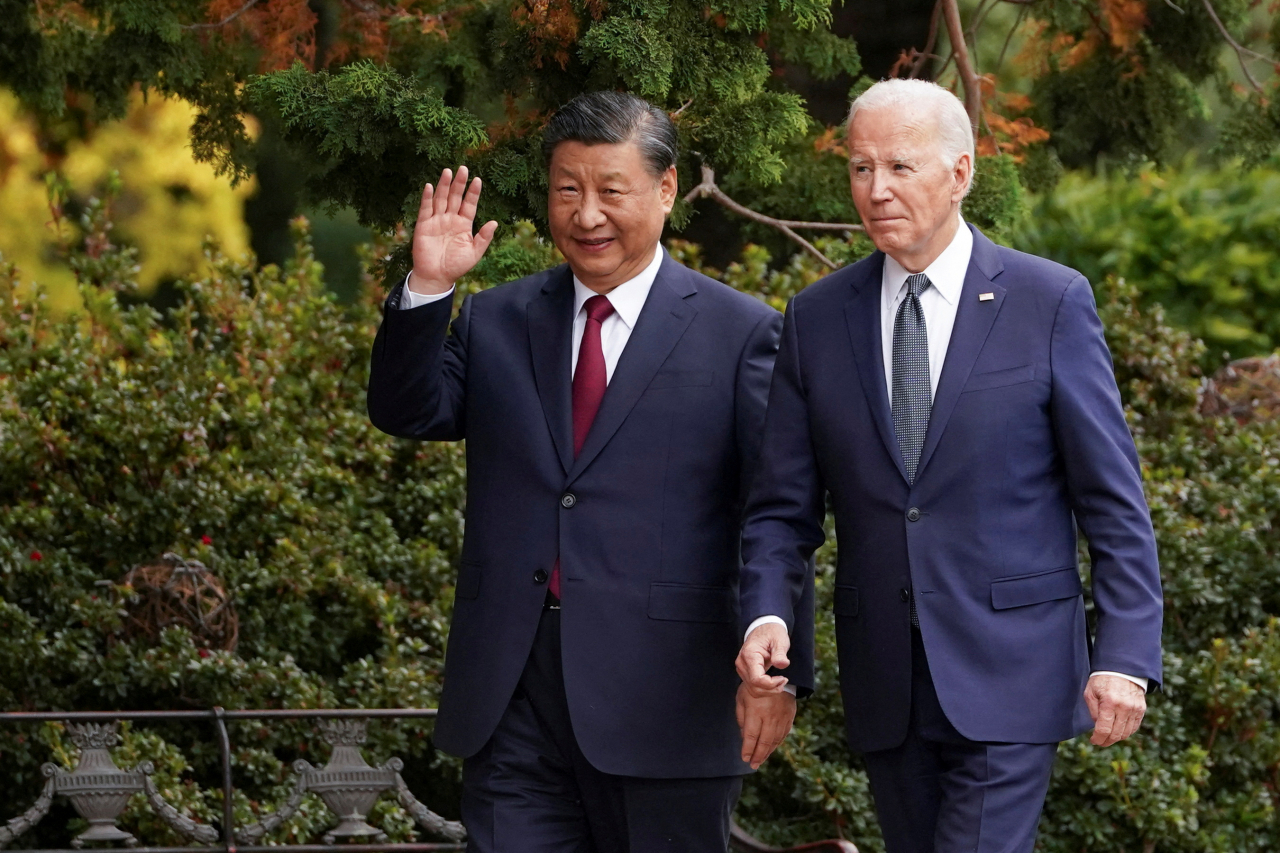Experts forecast US-China rivalry to continue for at least 5 years: report
By YonhapPublished : Dec. 5, 2023 - 14:57

South Korean and global security experts saw it unlikely for the growing competition between the United States and China to end soon, with some even predicting an armed conflict within the next five years, a report showed Tuesday.
In the "2023 Near Global Survey Report of the World Order" released by the NEAR Foundation, an independent think tank specializing in Northeast Asia, 15 percent of the 42 experts surveyed believed a military clash between Beijing and Washington is likely to break out within the next five to 10 years, while 10 percent envisioned a more imminent military clash within five years.
The experts participating in the in-depth descriptive survey included professors, former diplomats and researchers from 28 countries in North America, Europe, Asia and Oceania with at least 10 years of experience in international relations and security, according to the think tank.
Another 35 percent of the respondents anticipated the US-Sino rivalry to continue for the next 10 years without an actual military clash.
None of the experts forecast a compromise between the two countries within the next five years, signaling a "prevailing sense of uncertainty" in diplomatic relations, the report said.
Amid the intensifying strategic competition and multiple challenges, the experts called for a "steady shift towards a managed international order of competitive symbiosis" to prevent further fragmentation.
They also stressed that "middle powers," such as South Korea, should bear more of the burden of addressing regional and global challenges while urging major powers to demonstrate political leadership. (Yonhap)



















